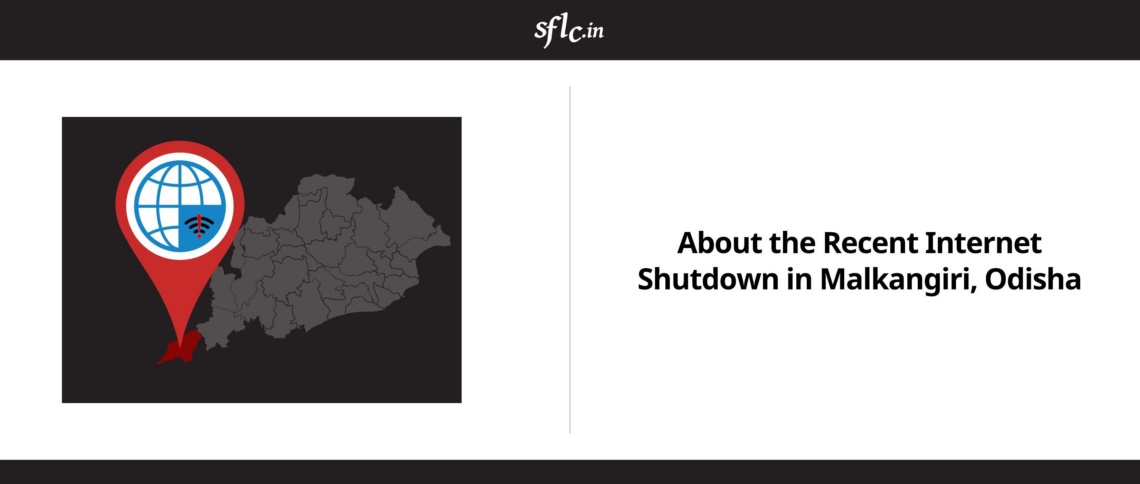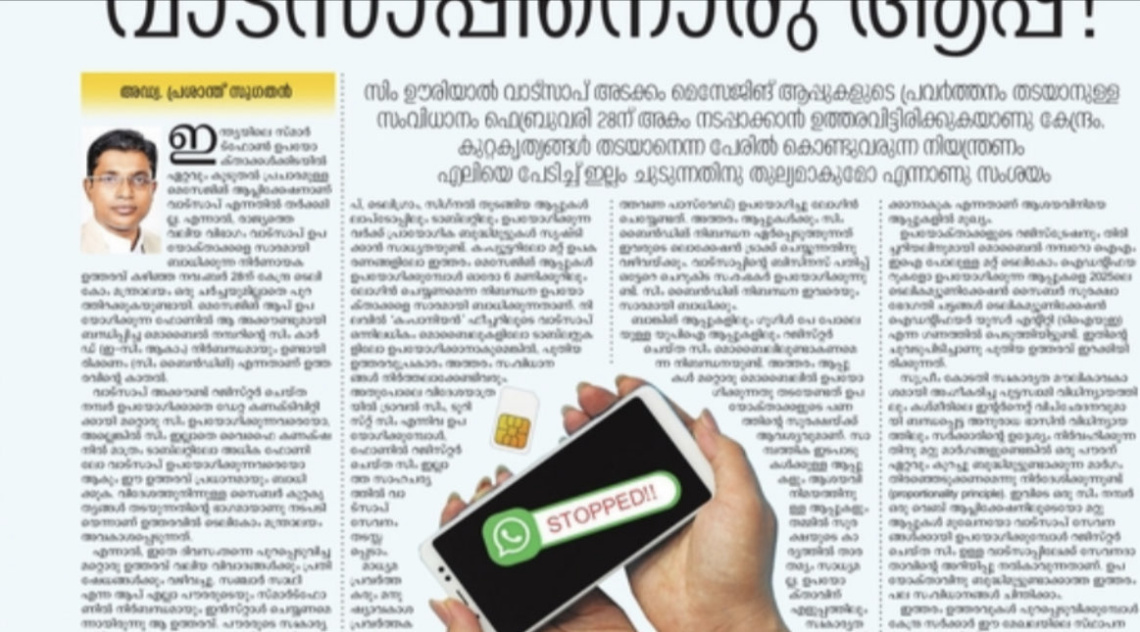The Ministry of Electronics and Information Technology, Government of India (“MeitY”), released the Draft Intermediaries Guidelines (Amendment) Rules, 2018 on the 24th of December, 2018 (“the Draft Rules”). The Draft Rules seek to amend the existing Intermediaries Guidelines, which enlist certain conditions for online intermediaries to follow in order to qualify for the safe-harbour protection offered to them under Section 79 of the Information Technology Act, 2000. MeitY had requested relevant stakeholders to provide their comments/ suggestions by the 31st of January, 2019 on the Draft Rules.
We have submitted a joint letter to Shri Ajay Prakash Sawhney, Secretary, MeitY, highlighting key provisions of the Draft Rules which impact basic human rights such as free speech and privacy. The joint letter has been signed by various civil society organizations, free software associations, public spirited academicians and professionals.
We have also submitted our detailed comments to the Ministry stating our concerns with the Draft Rules. Our detailed comments will be available on this website soon.
We endeavour to regularly consult with concerned government departments on proposals which adversely affect citizen’s digital rights.
We thank all the signatories for extending their support and standing for digital rights.
A copy of the joint letter is as follows:
January 31, 2019
Shri Ajay Prakash Sawhney,
Secretary, Ministry of Electronics and Information Technology,
Government of India,
Electronics Niketan, 6, CGO Complex,
Lodhi Road, New Delhi – 110003
secretary@meity.gov.in
Sir,
Sub: Draft Information Technology [Intermediaries Guidelines (Amendment) Rules], 2018
We write to you to express our concern on certain provisions of the Draft Information Technology [Intermediaries Guidelines (Amendment) Rules], 2018 (“the Draft Rules”), recently issued by Ministry of Electronics and Information Technology (“MeitY”). These Draft Rules seek to amend existing Intermediaries Guidelines Rules, 201 and emanate from Section 79 of Information Technology Act, 2000 which provides safe-harbour protection to intermediaries from liability due to third party content.
Following are some critical issues with the Draft Rules:
1. Disproportionate use of Government Regulation
The Draft Rules, despite being targeted primarily on social media platforms and messaging applications, would apply equally to all intermediaries including TSPs, ISPs, Cyber Cafes etc. This is a disproportionate use of government regulation.
2. Vague Terms Resulting in ‘Chilling Effect’
One of the grounds for the Supreme Court striking down Section 66A of the IT Act, 2000 in Shreya Singhal was the vagueness of the terms used in the provision, like – offensive, menacing and dangerous – as these disproportionately invaded the right of free speech. However, words with a similar level of vagueness, such as ‘grossly harmful, harassing and hateful’ still exist in the Draft Rules.
3. Privacy and Breaking Encryption
The Draft Rules require intermediaries to include a traceability feature to assist law enforcement agencies. Such a
traceability requirement could lead to breaking of encryption on apps such as WhatsApp and Signal, and this will
be a major threat to the privacy rights of citizens as enshrined in the Puttaswamy judgement of the Supreme Court.
Addition of a requirement of traceability in a subordinate legislation is also beyond the rule making power of the
Government.
4. Pre-Censorship and Automated Content Filtering
The Draft Rules require intermediaries to deploy automated tools for proactively filtering unlawful content on their platforms. This would result in a pre-censorship regime, violating the right to free speech and expression, where AI technology would crawl through social media to filter and remove content which it deems ‘unlawful’. We request you to protect the principles of open and accessible internet, safe harbour granted to intermediaries and the fundamental rights of privacy and free speech of the internet users in India. While being cognizant of national security interests, we appeal for a less-invasive and proportional means of regulation of the internet.
Sincerely,
Signatories
Organisations:
Alternate Law Forum
Digital Empowerment Foundation
Esya Centre
Free Software Foundation Tamil Nadu
Free Software Movement of India
Free Software Movement Karnataka
HasGeek
Internet Democracy Project
IT for Change
Point of View
Software Freedom Law Centre, India (SFLC.in)
Concerned Citizens:
Abhayraj Naik
Researcher, Bengaluru
Faisal Farooqui
Founder & CEO, Mouthshut.com
Geeta Seshu
Journalist and co-Founder, FreeSpeechCollective (https://freespeechcollective.in/)
Karma Paljor
Editor-in-Chief, EastMojo
Nikhil Pahwa
Founder, MediaNama.com
Pankaj S Shah
President | ASIRT (www.asirt.in)
Association of System Integrators & Retailers in Technology
Prof. Rahul De
Indian Institute of Management, Bangalore
Shamnad Basheer
Founder, SpicyIP
Sivasubramanian Muthusamy
Internet Society India Chennai
Prof. Shishir K Jha
IIT – Bombay
Sridhar Pabbisetty,
Public Policy and Urban Governance Specialist
Vikram Vincent
Research Scholar, IIT-Bombay
For further communications:
Biju K Nair
Executive Director, SFLC.in
mail@sflc.in



